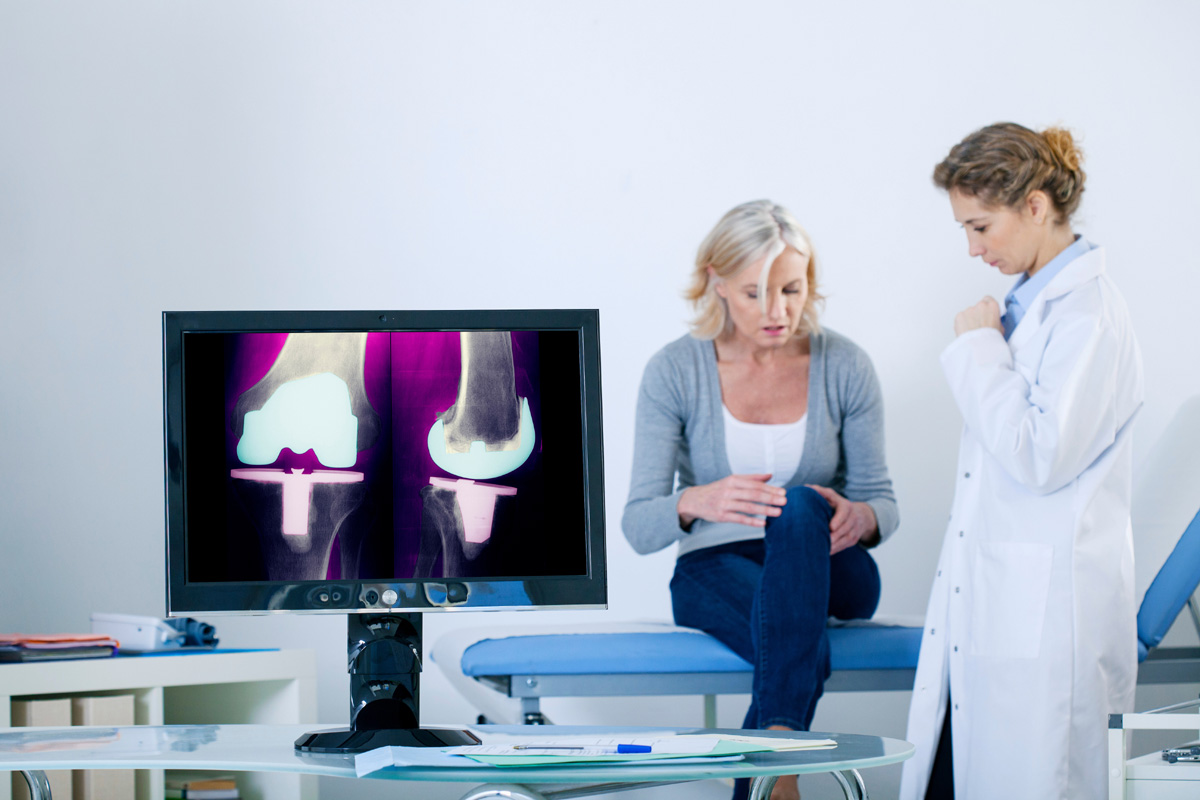Vitamins D, K2, A, C, E and Magnesium are crucial in dissolving bone spurs. These nutrients improve bone health by assisting in nutrient absorption, tissue repair and modulating inflammatory responses. Vitamin D and K2 are particularly important, regulating calcium deposition and bone metabolism, respectively. Additionally, the antioxidant properties of Vitamins A, C and E help control inflammation, further preventing bone spur growth. However, maintaining a balanced diet and consulting a healthcare provider before starting new supplements is necessary. For a thorough understanding of dietary interventions for bone spur management, further investigation is warranted.
Understanding Bone Spurs
Bone spurs, medically known as osteophytes, are tiny, bony projections that develop along the edges of bones, often in response to joint damage caused by arthritis. These growths are the body’s attempt to repair itself by building extra bone. Whilst they often cause no symptoms, when they do occur, they can lead to pain and loss of motion in the joints.
The primary cause of bone spurs is the wear-and-tear damage associated with osteoarthritis. Other causes include aging, disc degeneration, genetics, poor posture, obesity, and improper footwear. Activities that put stress on the bones or joints, such as manual labour or certain sports, may also increase the risk of developing bone spurs.
Preventive measures for bone spurs involve lifestyle modifications to reduce the factors contributing to joint damage and inflammation. Preventive strategies include maintaining a healthy weight, engaging in regular physical activity, and practicing good posture. Wearing properly fitted shoes and using ergonomic tools and furniture can also alleviate the stress on joints. Dietary changes, primarily aimed at reducing inflammation, can also play a significant role in prevention. Understanding spur causes and preventive measures is essential in managing this condition effectively.
Role of Vitamins in Bone Health
Vitamins play a critical role in maintaining bone health, reflecting their importance in the context of bone spurs. Understanding the specific vitamins essential for bone health can provide insights into preventive and management strategies for bone-related conditions. The subsequent discussion will shed light on these essential bone health vitamins and their specific roles in bone maintenance and repair.
Understanding Bone Health Vitamins
When it comes to maintaining peak bone health, specific vitamins play a crucial role in the process. They not only contribute to the development and repair of bone tissue but also help maintain bone density and support calcium intake. Vitamins facilitate the absorption of calcium, an essential mineral for bone health, from the diet into the body. A decrease in bone density is linked to vitamin deficiencies, which can lead to conditions such as osteoporosis. Hence, adequate vitamin intake is vital for optimal bone health. Understanding the role of vitamins in maintaining bone health provides a solid foundation for exploring strategies for preventing and treating bone-related health issues, including bone spurs.
Essential Vitamins for Bones
Building on our understanding of the overall role of vitamins in bone health, it is imperative to discuss in detail the specific vitamins that are essential for maintaining the structural integrity and density of bones. Calcium, with its undisputed importance, is the foundation of bone health. It builds and protects the skeletal structure, thus preventing the formation of bone spurs. Vitamin D facilitates calcium absorption, while Vitamin K2 guarantees calcium reaches the skeleton. Magnesium balances the action of calcium, and Vitamin A supports cell differentiation and bone growth. Alongside these vitamins, the significance of exercise cannot be understated. Regular physical activity stimulates bone formation and improves overall bone health. Therefore, a balanced diet rich in essential vitamins, combined with consistent exercise, forms the backbone of ideal bone health.
Vitamin D: Bone Spurs Enemy
In the battle against bone spurs, Vitamin D emerges as a significant adversary. This vitamin plays an essential role in maintaining bone health. Its deficiency can have serious consequences, notably the formation of bone spurs. A bone spur is a pointed outgrowth that can cause significant discomfort and pain. A lack of Vitamin D interferes with the body’s ability to absorb calcium, leading to a potential overgrowth of bone tissue, causing these painful outgrowths.
Sunlight’s role in the production of Vitamin D is critical. When exposed to sunlight, the body naturally produces Vitamin D, thereby aiding in maintaining bone health and preventing the formation of bone spurs. However, with lifestyle changes leading to decreased sun exposure, Vitamin D deficiency has become increasingly common, raising the risk of bone spurs.
Supplementing with Vitamin D can help mitigate these risks. A diet rich in Vitamin D or supplements can help restore the necessary levels in the body, thereby reducing the likelihood of bone spur formation. Maintaining adequate Vitamin D levels is essential in the prevention and treatment of bone spurs, highlighting its role as a bone spur’s foe.
Benefits of Vitamin K
Shifting our focus to Vitamin K, it is essential to understand its substantial benefits, particularly in bone health and potential prevention of bone spurs. Vitamin K is vital for the synthesis of proteins that control bone metabolism, thereby playing a key role in maintaining bone strength and reducing the likelihood of bone disorders such as osteoporosis or bone spurs.
Vitamin K deficiencies are not common but can greatly affect bone health when they occur. Symptoms may include easy bruising, excessive bleeding, and weakened bones, potentially leading to bone spurs’ formation. Hence, maintaining optimum Vitamin K levels is crucial for bone health.
K rich food sources are an excellent way to guarantee adequate Vitamin K intake. Foods such as leafy green vegetables, fermented dairy products, and certain meats are rich in Vitamin K. Incorporating these into a balanced diet can support healthy bones and potentially prevent bone spurs.

How Vitamin A Helps
Vitamin A’s role in bone health is crucial, particularly in the context of bone spurs. This essential nutrient contributes greatly to the maintenance and repair of bone tissue, which can impact the formation and dissolution of bone spurs. An understanding of the benefits of Vitamin A can thus provide key insights into non-surgical methods for managing and potentially reducing bone spurs.
Vitamin As Role
When it comes to mitigating the effects of bone spurs, Vitamin A plays a crucial role due to its proven benefits for bone health. One of the primary ways Vitamin A supports bone health is through its influence on vitamin bioavailability. This refers to the amount of a nutrient that is absorbed and used by the body. Vitamin A aids in the absorption of other key nutrients, such as calcium, which are essential for bone health. Additionally, Vitamin A belongs to the category of antioxidant vitamins. These are substances that help protect your cells against the effects of free radicals, molecules produced when your body breaks down food or is exposed to tobacco smoke and radiation. Free radicals might play a role in heart disease, cancer and other diseases.
Benefits on Bone Spurs
Exploring the specific benefits of Vitamin A on bone spurs, it is important to mention that this nutrient can potentially aid in reducing the growth and development of these bony projections. Vitamin A is known for its essential role in bone remodeling, a process that if disrupted, can lead to spur formation triggers.
- Vitamin A regulates the balance between bone formation and bone resorption, which is vital in maintaining bone health.
- It also helps to control inflammatory responses, which can exacerbate bone spur growth.
- Additionally, Vitamin A may complement non-vitamin treatments for bone spurs, enhancing their effectiveness.
Importance of Vitamin C
Indisputably essential to our overall health, Vitamin C plays a significant role in the body’s ability to dissolve bone spurs. Known scientifically as ascorbic acid, this crucial nutrient enhances the body’s natural healing processes and is indispensable for the growth, development, and repair of all body tissues. It’s particularly vital in maintaining healthy connective tissues, which is pivotal in the prevention and dissolution of bone spurs.
C vitamin sources are abundant in a variety of fruits and vegetables. These include citrus fruits, strawberries, bell peppers, broccoli, and spinach. Regular intake of these foods can guarantee that the body has a sufficient supply of this vital nutrient, reducing the risk of bone spur formation.
Furthermore, Vitamin C’s antioxidant properties play an instrumental role in protecting the body from damage by harmful molecules called free radicals. These properties aid in reducing inflammation, a critical factor in the formation of bone spurs. By mitigating inflammation and enhancing tissue repair, Vitamin C can help manage and even prevent the development of these painful growths.
The Power of Vitamin E
The efficacy of Vitamin E in the context of bone spur reduction is an area of substantial interest. This vitamin is widely recognized for its potent antioxidant properties and its critical role in maintaining bone health. Further exploration of its benefits will provide a more thorough understanding of how it may contribute to the dissolution of bone spurs.
Vitamin E Benefits
Acclaimed for its potent antioxidant properties, Vitamin E plays an essential role in the prevention and dissolution of bone spurs. Its anti-inflammatory effects aid in reducing inflammation, hence helping in the healing process of bone spurs. This is particularly important considering the pain and discomfort associated with this condition.
E antioxidant sources are numerous and include:
– Nuts and seeds
– Green leafy vegetables
– Vegetable oils
A diet rich in these foods can help prevent E vitamin deficiency, which is critical as such deficiency can lead to neurological problems and anemia. It’s evident that maintaining adequate levels of Vitamin E not only supports overall health but also aids in managing and preventing bone spurs. This highlights the power and significance of this essential vitamin.
Bone Spurs Reduction
Employing the holistic power of Vitamin E offers a promising approach to alleviating the impact of bone spurs, potentially decreasing their size and easing associated discomfort. In addition to this, a thorough plan involving Spur Management Techniques and suitable Lifestyle Adjustments must be put into action. This involves maintaining a well-rounded diet abundant in Vitamin E, participating in regular, gentle physical activities, and reducing activities that put strain on the affected area. It’s important to note that Vitamin E is not a standalone solution but rather a part of a holistic approach towards managing bone spurs. Such strategies, combined with the antioxidant properties of Vitamin E, can aid in effectively managing bone spurs, reducing pain, and enhancing the quality of life for individuals dealing with this condition.
Magnesium: A Vital Mineral
Why is magnesium considered essential, particularly in the context of dissolving bone spurs? Magnesium, an indispensable mineral, plays a significant role in maintaining bone health. It aids in calcium absorption, which is crucial for bone strength and density. In the context of bone spurs, magnesium can help mitigate their development by ensuring proper balance of minerals in the body.
However, obtaining sufficient magnesium solely from diet can be challenging due to absorption issues. Magnesium sources are abundant in food items like nuts, seeds, and green leafy vegetables. Yet, factors like soil depletion and unhealthy dietary habits often lead to a magnesium deficit.
Here are three key points to remember regarding magnesium and bone spurs:
- Magnesium aids in calcium absorption, thereby helping to prevent the formation of bone spurs.
- Magnesium deficiency can contribute to the development of bone spurs.
- Ensuring adequate magnesium intake can be challenging due to absorption issues and inadequate dietary sources.

Incorporating Vitamins in Diet
Shifting towards the topic of including vitamins in one’s diet, it is important to understand that a well-rounded intake of certain vitamins can play a vital role in maintaining ideal bone health and possibly preventing the formation of bone spurs. The Balanced Diet Importance cannot be emphasized enough when it comes to this issue. An appropriately balanced diet provides the body with the necessary vitamins and minerals it needs to repair and rejuvenate itself, including the skeletal system.
Vitamin C, for instance, is known for its role in collagen production, a protein that helps maintain bones’ strength and flexibility. Vitamin D helps the body absorb calcium, a mineral essential for bone health. Therefore, including foods rich in these vitamins is highly recommended.
Alongside a balanced diet, Mineral Supplementation may be necessary, especially for those who have dietary restrictions or specific health conditions. It is essential to remember that while vitamins are beneficial, they are part of a larger picture that includes a range of nutrients necessary for ideal health. Hence, a holistic approach that includes a balanced diet and appropriate supplementation is the best strategy to maintain bone health and possibly prevent bone spurs.
Potential Risks and Precautions
While integrating vitamins into your diet to promote bone health and prevent bone spurs is crucial, it is important to proceed with caution to avoid potential risks and adhere to necessary precautions. Excessive intake of certain vitamins can lead to harmful side effects and worsen existing risk factors.
Vitamins A, D, E, and K, for instance, are fat-soluble and can accumulate to toxic levels in the body when consumed in large amounts. This can result in a variety of health issues such as nausea, vomiting, hair loss, and even organ damage. Similarly, overconsumption of Vitamin C and specific B vitamins, although water-soluble, can still cause digestive disturbances including diarrhea and stomach cramps.
Here are some precautions to keep in mind:
- Always consult your healthcare provider before starting any new supplement regimen, especially if you have underlying health conditions or are taking other medications.
- Stick to the recommended daily allowance (RDA) of each vitamin to avoid potential toxicity.
- Be mindful that dietary supplements are not regulated by the FDA, so the quality and potency can vary.
Medical Treatments Vs Vitamins
Despite the potential risks associated with excessive vitamin intake, it is important to understand the comparative benefits and drawbacks of medical treatments and vitamins in managing bone spurs. Surgical interventions and pharmaceutical alternatives offer a direct approach to treating bone spurs, yet they arrive with their own set of risks and side effects.
Surgical interventions, for instance, may provide immediate relief from severe pain or mobility issues, but they also carry risks such as infection, nerve damage, and a potentially long and difficult recovery period. Additionally, surgery might not always prevent the recurrence of bone spurs.
Pharmaceutical alternatives, on the other hand, can reduce inflammation and pain, but long-term use often leads to gastrointestinal issues, kidney problems, and increased risk of cardiovascular events. Additionally, these medications do not address the root cause of the bone spurs and merely manage the symptoms.
Contrarily, vitamins, when used appropriately, can be a safer, more natural approach. Certain vitamins like K2, D, and E may help in dissolving bone spurs. They do not have the important side effects associated with medical treatments and can also aid in overall bone health. However, it’s important to remember that vitamins alone may not completely eliminate bone spurs and should be used as part of a thorough treatment plan.
Frequently Asked Questions
What Other Natural Remedies Can Be Used Alongside Vitamins to Help Dissolve Bone Spurs?
In addition to vitamins, other natural remedies such as herbal supplements have shown efficacy in treating bone spurs. Acupuncture treatment is also considered a beneficial remedy due to its pain-relieving and anti-inflammatory properties.
Can Physical Therapy Assist in the Treatment of Bone Spurs Along With Taking the Right Vitamins?
Yes, physical therapy can greatly assist in spur management. Therapeutic exercises improve mobility, decrease inflammation, and potentially alleviate the pain associated with bone spurs, complementing the benefits derived from appropriate vitamin intake.
How Do Bone Spurs Affect Overall Bone Health and How Can Vitamins Counteract These Effects?
Bone spurs’ pathogenesis can adversely affect overall bone health by causing pain and inflammation. Vitamin efficacy research suggests that vitamins like C, D, and K may aid in reducing these effects and promote healthier bones.
Is There a Specific Age Group More Likely to Benefit From Vitamin Therapy for Bone Spurs?
The age-related efficacy of vitamin therapy for bone spurs varies. Younger individuals often have higher vitamin absorption rates, potentially enhancing the effectiveness of such therapy, however, older adults may also benefit considerably from targeted vitamin supplementation.
Apart From Vitamins, Are There Any Specific Foods or Drinks That Can Help or Hinder the Treatment of Bone Spurs?
Dietary impacts on bone spurs can be significant. Consuming foods rich in calcium, magnesium, and Vitamin K can support bone health. Conversely, excessive intake of alcoholic or caffeinated beverages may hinder bone health and spur growth.

